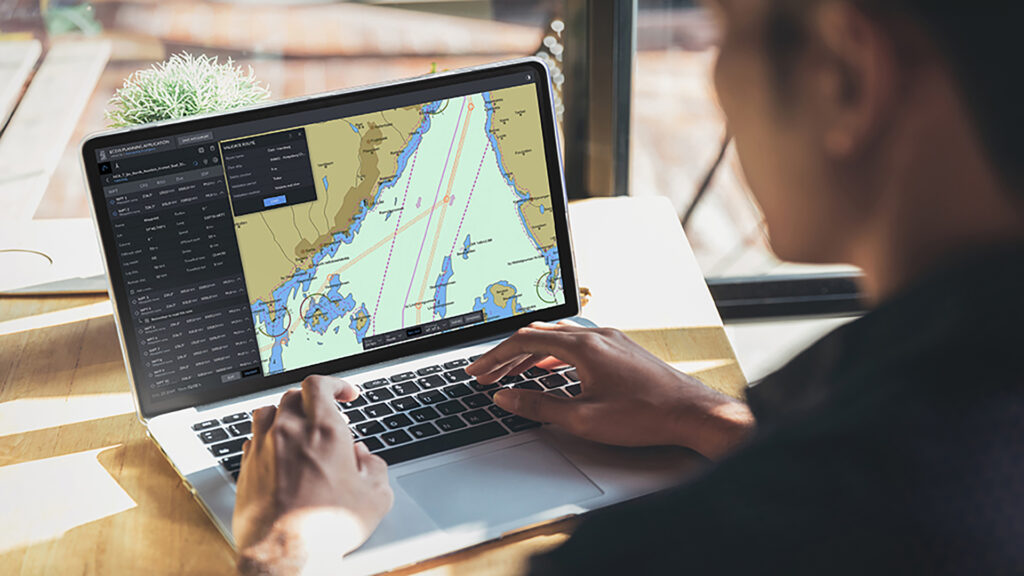Tomorrow’s seafarers will need to be better prepared than ever before. Vessels equipped with increasingly advanced systems will demand flawless operational competence. Equally pressing will be the need to keep on top of new and updated regulations regarding fuel types, emissions, and so on. Sustainable working practices will be key, for any number of legal, moral, environmental and reputational reasons.
Many shipowners are currently reeling from a staffing shortfall caused by the pandemic. Keeping certification up to date is a legal requirement for seafarers, but when lockdowns made visiting training centers effectively impossible, crew members were often compelled to seek employment elsewhere. Clearly, the ability to implement flexible training solutions is becoming as important as the content of the training programs themselves.
It is for this reason that a suite of online simulation solutions developed by Kongsberg Digital (KDI) is gaining so much traction. Offered as a subscription-based service via the K-Sim Connect digital platform, KDI’s training applications provide seafarers with ultra-realistic, immersive and dynamic simulation scenarios which replicate the full range of situations they may experience in their real-life duties. Crucially, the fact that these applications can be accessed remotely and asynchronously means that learning outcomes can effectively be achieved anywhere, anytime and at each trainee’s own pace. By dispensing with the obligation to travel to training centers at a given time, KDI’s digital solutions save considerable amounts of time and money for employers, instructors and trainees alike.
Support and integrate
A growing number of maritime bodies in Canada, ranging from Canadian Marine Training Institutes to the Canadian Coast Guard, are using KDI’s cloud-based simulation solutions as a vital part of their accredited education and training programs. Transport Canada has reviewed and approved several courses in Canadian schools and training centers which use KDI’s cloud-based simulators.
Other early adopters include the Northeast Maritime Institute (NMI) in Massachusetts. KDI’s partnership agreement with the NMI exemplifies the ways in which K-Sim Connect simulation applications can support and integrate with existing training ecosystems in different eLearning institutions. In this instance, KDI’s digital solutions supplement the NMI’s own online education, training, examination and certification portal, itself an indicator of the way tuition modes are evolving.
The hybrid or blended learning model is becoming increasingly popular. While the value of face-to-face interactions cannot be overstated, the benefits of reinforcing classroom lessons with asynchronous training are plentiful. Giving trainees the ability to study, carry out and repeat exercises in their own time and on their own computers strongly enhances classroom learning, giving students the most comprehensive preparation for their working life at sea.
Additionally, there are multiple benefits for instructors using KDI’s cloud-based simulation solutions. They have access to a substantial library of exercise areas and models from which they can construct their own exercises. These can in turn be instantly distributed to students or shared with other training centres through the K-Sim Connect online community. Instructors can easily review and grade exercises, going over the recordings to assess each student’s actions and decision-making skills with a view to issuing a detailed debrief and devising appropriate plans for future learning.
As the first cloud-based simulators to meet the new DNV Class D certification, KDI’s cloud simulation solutions meet all the required criteria for remote learning programs. The simulator application library currently includes models for engine room management, cargo handling, Radar, ECDIS and route planning: more applications in the navigation training domain are under development. The maritime industry can rest assured that trainees who successfully complete their blended training courses will emerge into the world with a very safe pair of hands.
